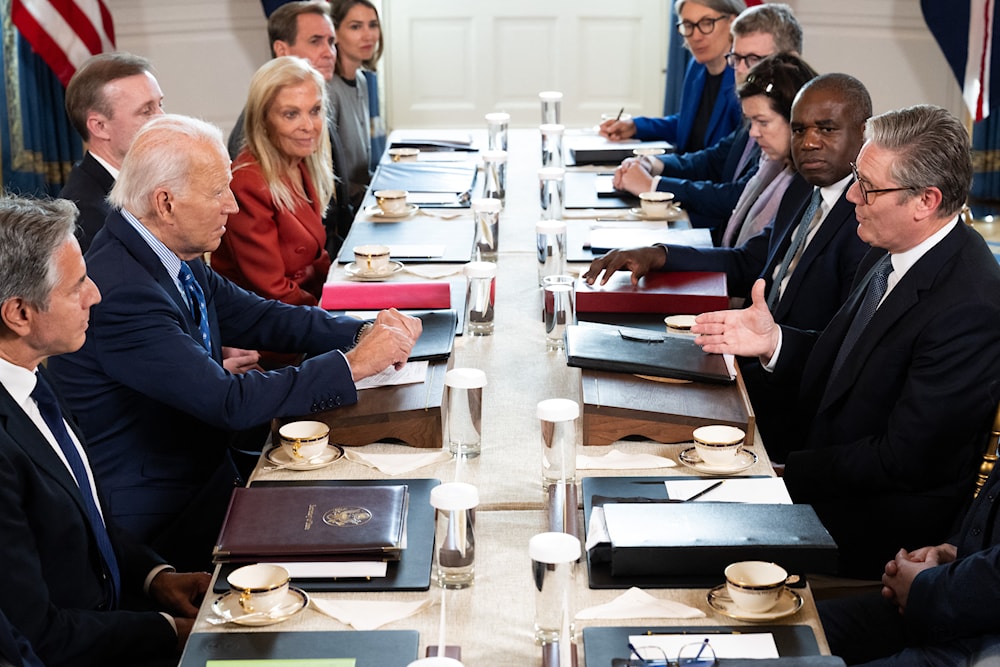Biden, Starmer delay decision on long-range missiles to Ukraine
UK Prime Minister Keir Starmer says further discussions on the matter would take place during the UN General Assembly in New York.
-

US President Joe Biden (L) and British Prime Minister Keir Starmer (R) participate in a bilateral meeting in the Blue Room of the White House in Washington, DC, on September 13, 2024. (AFP)
British Prime Minister Keir Starmer and US President Joe Biden postponed on Friday a decision on whether to allow Ukraine to use long-range, Western-supplied missiles to strike targets inside Russia.
The proposal has prompted stern warnings from Moscow, which has threatened that such actions could escalate into a war with NATO.
Speaking to reporters at the White House, Starmer confirmed that he had a "wide-ranging discussion about strategy" with Biden but clarified that the meeting "wasn't a meeting about a particular capability."
Ahead of the talks, officials had indicated that Starmer would urge Biden to endorse the deployment of British Storm Shadow missiles, allowing Ukraine to launch deeper strikes into Russian territory.
However, the Labour leader suggested that further discussions on the matter would take place during the UN General Assembly in New York, scheduled for the following week, involving a broader group of stakeholders.
During the meeting at the White House, Biden downplayed a warning from Russian President Vladimir Putin, who had warned that permitting Ukraine to use these weapons would mean the West was "at war" with Russia.
"I don't think much about Vladimir Putin," Biden responded when asked about the Russian leader's comments.
The leaders also discussed the ongoing war on Gaza. The UK recently suspended 30 out of its 350 arms export licenses with the Israeli occupation, citing concerns that the weapons might be used in violation of international humanitarian law.
According to a White House statement, Biden and Starmer reiterated their "ironclad commitment" to supporting "Israel", but both emphasized the "urgent need" for a ceasefire agreement and for "Israel to do more to protect civilians in Gaza."
The White House had previously indicated that any major announcement regarding Ukraine was unlikely to emerge from Friday's meeting, marking Starmer’s second visit to the White House since assuming office in July.
"I wouldn't expect any major announcement in that regard coming out of the discussions, certainly not from our side," National Security Council spokesperson John Kirby told reporters.
Meanwhile, Ukrainian President Volodymyr Zelensky pressed his Western allies to increase their support. Speaking in Kiev, Zelensky criticized the West for being "afraid" to provide Ukraine with the same level of missile defense capabilities offered to "Israel".
Zelensky also announced plans to meet with Biden this month to propose his "victory plan" for ending the two-and-a-half-year conflict with Russia.
Read more: Russia revokes accreditation of six UK diplomats citing espionage

 3 Min Read
3 Min Read










